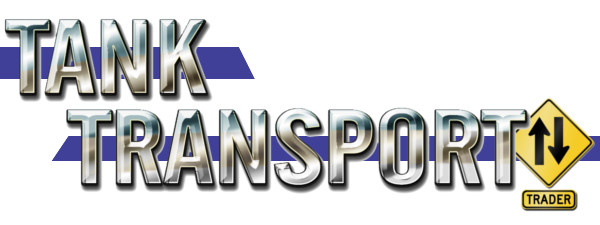J.B. Hunt’s first-quarter earnings were down nearly 20% from last year due to economic uncertainty.
J.B. Hunt Cautious Optimism Amid Freight Market Uncertainty

“In all of our transactional businesses, the bid compliance from our customers is at an all-time low.” – John Roberts, CEO, J.B. Hunt.
As the freight market experiences a downturn, J.B. Hunt Transport Services executives and their clients are exercising cautious optimism while waiting for signs of a market recovery. Economic uncertainty continues to impact the industry, with bid compliance from customers at an all-time low, according to Chief Executive John Roberts.
“In all of our transactional businesses, the bid compliance from our customers is at an all-time low,” chief executive John Roberts told analysts April 17.
J.B. Hunt’s First-Quarter Earnings Decline
First-quarter earnings for J.B. Hunt saw a decrease of nearly 20 percent from last year. Despite sales wins, the company has yet to see or feel the benefits, with no clear indication of when the market will recover. In the first three months of the year, the Arkansas-based company reported a net profit of nearly $198 million, down from $243 million in the same period in 2022. Total revenues, excluding fuel surcharges, fell 10 percent to about $2.7 billion, and the operating margin slipped to 8.6 percent.
Enjoying our insights?
Subscribe to our newsletter to keep up with the latest industry trends and developments.
Stay InformedJ.B. Hunt Leadership Leans on Past Experiences

“I’m not suggesting we’ve completely found the bottom, but we have seen a more leveling out.” – Shelley Simpson, President, J.B. Hunt.
President Shelley Simpson explains that J.B. Hunt’s leadership team relies on past experiences with freight cycles to guide their cautious optimism for when volumes might improve. Clients remain hopeful for a pickup later this year that would resemble a traditional peak season. However, Simpson points out that the company lacks sufficient data to support this optimism.
Factors considered by J.B. Hunt’s leadership:
- Past experiences with freight cycles
- Client optimism for market recovery
- Current market data and trends
Intermodal Division Revenues Slip 4 Percent
The company’s intermodal division, responsible for 61 percent of first-quarter operating profits, experienced a 4 percent drop in revenues compared to early last year. Lower import volumes, particularly transcontinental loads, had a significant impact on the results. Eastern network loads saw a slight increase of 1 percent.
Imports and Goods Economy Need Improvement
Volumes worsened throughout the quarter, going from a 2 percent decline in January to 4 percent in February and 8 percent in March. CEO John Roberts emphasizes the need for improved imports, a finalized West Coast labor agreement, and a strengthened goods economy as critical factors for a market turnaround.
Spot Prices Show Signs of Leveling Out

“We need imports to improve. We need a West Coast labor agreement to finalize and give customers confidence in the West Coast to import programs.” – John Roberts, CEO, J.B. Hunt.
Data from TCI Business Capital indicates that van, flatbed, and reefer rates have decreased between 20 percent and 28 percent from a year ago. Simpson suggests that these downturns in spot prices should soon begin to affect the market meaningfully, as carrier capacity evaluations make it difficult for spot prices to drop much further. Although she does not claim that the market has completely bottomed out, she believes a leveling out is occurring.
Capital Spending Plans Remain Unchanged
Despite the decline in first-quarter numbers and the uncertain outlook, J.B. Hunt is not altering its capital spending plans. CFO John Kuhlow states that the company intends to invest between $1.5 billion and $2 billion in equipment and real estate this year.
Key elements for navigating the uncertain freight market include:
- Adapting to market fluctuations and opportunities
- Investing in future growth and expansion
- Strengthening partnerships and collaboration
J.B.Hunt Shares Experience Moderate Fluctuations
Shares of J.B. Hunt were down about 2 percent to $172.90 in pre-market trading on April 18. However, over the past six months, the company’s shares have seen a slight increase, resulting in a market capitalization growth to more than $18 billion.
Strategies for Navigating an Uncertain Freight Market
In the face of freight market uncertainty, J.B. Hunt’s cautious optimism and reliance on past experiences offer valuable insights for others in the industry. By maintaining a level-headed approach, companies can better weather economic downturns and prepare for potential market recoveries.
Adapting to Market Fluctuations and Opportunities
It is crucial for companies within the freight industry to stay informed and adapt to market fluctuations. By closely monitoring market trends, such as import volumes and spot prices, businesses can make well-informed decisions and take advantage of opportunities as they arise.
Investing in Future Growth and Expansion
Even in uncertain times, it’s essential for businesses to continue investing in future growth and expansion. J.B. Hunt’s commitment to its capital spending plans demonstrates the importance of forward-thinking strategies that enable companies to thrive in the long term.
Strengthening Partnerships and Collaboration
Working closely with clients, partners, and stakeholders can help businesses navigate uncertain markets more effectively. By fostering strong relationships, companies can collaborate on solutions and share information that benefits all parties involved.
Preparing for the Future with Cautious Optimism
While the freight market’s future remains uncertain, J.B. Hunt’s approach of cautious optimism serves as a valuable example for other businesses in the industry. By maintaining a balanced perspective and staying prepared for potential changes, companies can navigate these uncertain times and position themselves for success in the long run.
Dive Deeper into Related Topics:
- J.B. Hunt’s Innovative Solutions: Learn more about how J.B. Hunt is leveraging to transform the transportation industry by visiting our J.B. Hunt page.
- Intermodal Transport Trends: Explore the latest news and insights on intermodal transportation by checking out our intermodal transport trends section.
- Challenges in the Freight Market: Dive deeper into the issues and hurdles affecting the freight market by visiting our freight market page.
- Transportation Industry Insights: Delve into the latest developments and trends in the transportation industry by visiting our Transportation Industry Insights page.
- Supply Chain Disruptions: Learn more about the causes and impacts of supply chain disruptions by exploring our Supply Chain Disruptions page.
Explore Industry Resources and Insights:
J.B. Hunt Official Website: Access information about J.B. Hunt’s services, history, and commitment to innovation in the transportation industry. https://www.jbhunt.com/
U.S. Bureau of Economic Analysis: Access data and insights on the overall health of the U.S. economy, including information on the goods economy: https://www.bea.gov/
Federal Maritime Commission: Get information about the regulatory body overseeing ocean transportation in the United States, including labor agreements and import programs: https://www.fmc.gov/
U.S. Department of Transportation: Explore various resources on transportation industry regulations, policies, and initiatives in the United States: https://www.transportation.gov/























